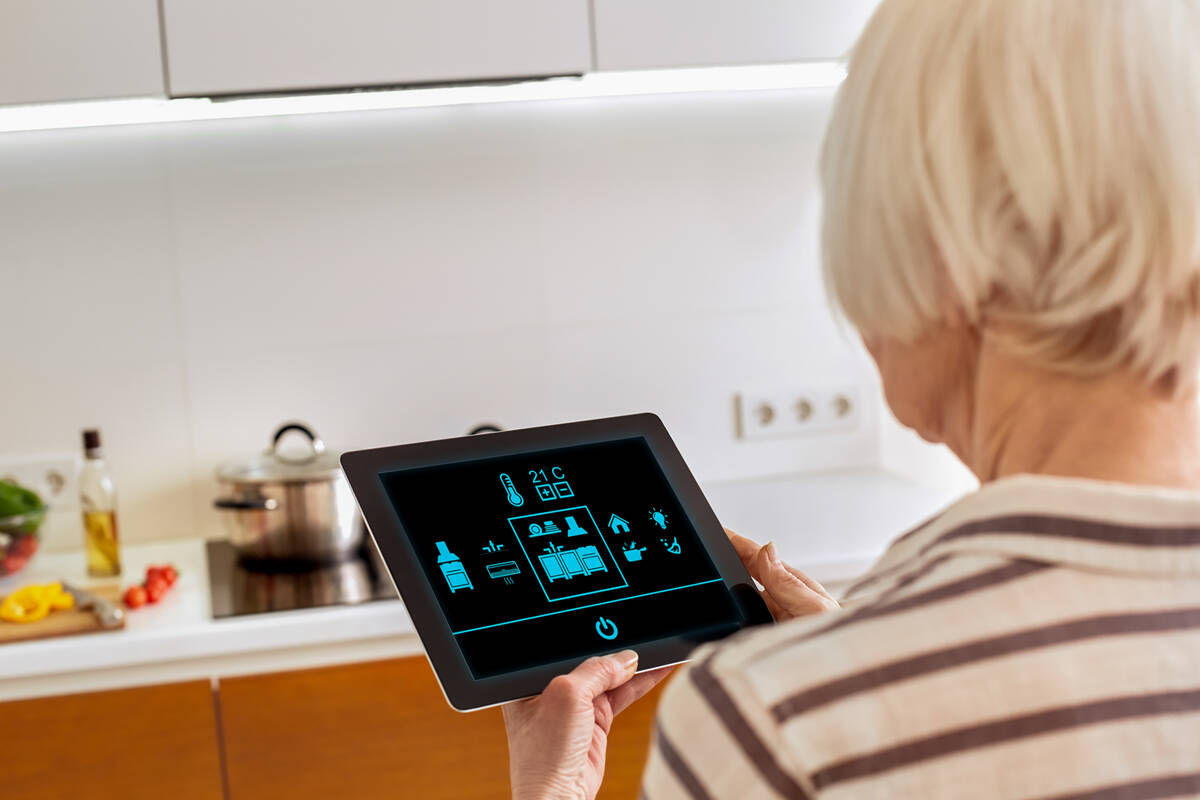Savvy Senior: Smart home devices to help seniors age in place
Dear Savvy Senior: I’ve been talking to my mobility challenged mother, who lives alone, about automating her house with some smart home products to make it more convenient. She’s very interested, but we’d like to get your opinion as to which types of smart devices are most helpful for seniors aging in place. — Searching Daughter
Dear Searching Daughter: If your mother is game, smart home products — such as smart lights, video doorbells and voice-activated speakers — can be very useful for aging in place. These devices can add safety and convenience to a home by providing voice- and app-controlled operation, which is extremely helpful for seniors who have mobility issues or reduced vision.
Smart home technology can also provide family members peace of mind by giving them the ability to keep tabs on their elder loved one when they can’t be there.
If you’re interested in adding some smart home products to your mom’s house, she’ll need home Wi-Fi installed, and she’ll need a smartphone, tablet or smart speaker to operate them. Here are some different types of devices to consider.
■ Smart speakers: A smart speaker — such as the Amazon Echo, Google Nest or Apple HomePod — can serve as the brains of a smart home, controlling the devices with voice commands or automating them.
These devices can also play your mom’s favorite music, read audiobooks, make calls, set timers and alarms, provide reminders for medications and appointments, check traffic and weather, answer questions, call for help in emergency situations and much more — all done by voice commands.
■ Smart lightbulbs: To help prevent falls — which are often caused by fumbling around a dark room looking for a light switch — smart lightbulbs will let your mom turn on and off the lights by voice command, smartphone or tablet. These bulbs can also change brightness and color and be programmed to come on and off whenever she wants.
■ Smart plugs: These units plug into a standard outlet and connect to the internet. That means your mom can control whatever she plugs into them — from a space heater to a coffee maker — using her voice or phone.
■ Video doorbell: Safety is also a concern for older adults, especially those who live alone. A video doorbell would let your mom see and speak to visitors at the door without having to walk over and open it.
■ Smart locks: For convenience and safety, smart locks would give your mom keyless entry to her home, provide customized access to family, friends and caregivers and let you monitor who comes and goes from your mom’s house.
■ Smart thermostat: This lets your mom pre-program or manually control the temperature in her home with voice command or via phone.
■ Smart smoke alarms: These will alert your mom when smoke or carbon monoxide is detected and will send alerts to your phone if a problem is detected.
■ Stovetop shutoff: To prevent cooking fires, smart stovetop shutoff devices, such as the IGuardStove, will turn off electric and gas stovetops when left unattended and will alert you with a text message.
■ Medical alert system: These devices provide wearable wrist or necklace emergency buttons that would allow your mom to call for help if she were to fall or need assistance. Many systems also provide voice-activated and fall detection features, as well as caregiver tracking apps that will let you keep tabs on her.
■ Cameras and smart sensors: If your mom needs more in-depth monitoring, indoor cameras will allow you to see, hear and talk to her from your phone. Or, if that’s too intrusive, you can install smart contact sensors on her doors so you can know when she comes and goes.
Send your senior questions to: Savvy Senior, P.O. Box 5443, Norman, OK 73070, or visit SavvySenior.org.

















